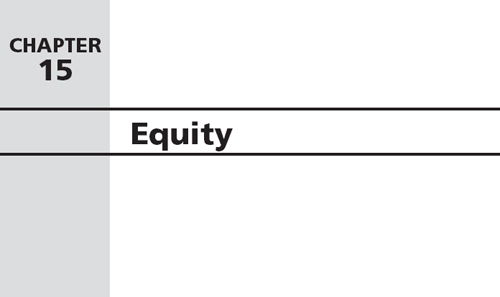
Equity is the basic risk capital of an enterprise. Equity capital has no guaranteed return and no timetable for the repayment of the capital investment. From the standpoint of enterprise stability and exposure to risk of insolvency, a basic characteristic of equity capital is that it is permanent and can be counted on to remain invested in good times as well as bad. Consequently, equity funds can be most confidently invested in long-term assets, and it is generally thought that equity funds can be exposed to the greatest potential risks.
Investors deciding whether to purchase a company's common stock must balance the existence of the company's debt, which represents a risk of loss of investment, against the potential of high profits from financial leverage. The mix of a company's debt and equity capital is termed its capital structure. Over the years, there has been considerable debate over whether a firm's cost of capital varies with different capital structures. Specifically, financial theorists and researchers have espoused theories and examined empirical evidence to discern whether different mixtures of debt and equity in a firm's capital affect the value of the firm. Modigliani and Miller found that an enterprise's cost of capital is, except for the tax deductibility of interest, not affected by the mix of debt and equity.1 This is true, they asserted, because each individual ...
Get Financial Accounting Theory and Analysis: Text and Cases, 11th Edition now with the O’Reilly learning platform.
O’Reilly members experience books, live events, courses curated by job role, and more from O’Reilly and nearly 200 top publishers.

